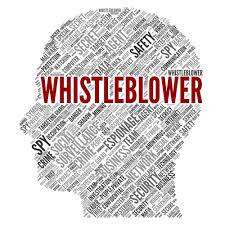
Nice strategy to recover looted funds. But it poses some ethical concernThe percentage-cut reward policy for whistle-blowers that help to reclaim looted funds is nice strategy, and that is stating the obvious.But if you still doubt, just see its remarkable efficacy, these few days past, from this reportage, from a newspaper.“The Federal Government is to pay between N1.5billion and N3billion to three whistle-blowers for their roles in the recovery of looted funds totalling over N60 billion,” went the report by the New Telegraph. “The amount represents 2.5 or five per cent of the $151 million (about N52.8 billion) and N8 billion recovered from three sources, following information from the whistle-blowers.”According to Alhaji Lai Mohammed, Minister of Information and Culture, the government, by the new deal, would cede between 2.5 per cent and five per cent to each whistle-blower, from the amount (s)he helped to retrieve.
Even then, the retrieved amounts reported are different from the US $9.8 million and £74,000 sterling reportedly recovered from Andrew Yakubu, former Group Managing Director of the Nigerian National Petroleum Corporation (NNPC), for which a court has ordered temporary forfeiture.If at this rate more looted funds are recovered, and whoever helped are made happy by their promised cut, what can be a more potent strategy?Still, Alhaji Mohammed himself announced a piece of news which, though good, has brought to the fore the moral dissonance with the deal.He told the audience at the inauguration of Human Rights Radio, an Abuja local radio, that a whistle-blower just turned down his promised cut from the N1billion he had helped to retrieve, saying that he facilitated the recovery as a duty to his country. Though the minister neither named the person nor the bank the alleged loot was recovered from, he reiterated the Federal Government’s commitment to the whistle-blowers policy.The unnamed whistle-blower’s action would resonate with not a few, from the moral imperative of his noble stand.Again, there is nothing wrong with a policy to reward whistle-blowers with an agreed percentage of the former loot. To start with, it is trite that an agreement, especially entered into by a government, ought to be sacrosanct. That is the only path of honour.Besides, with the rotten morals of contemporary Nigeria, where just a few illicitly lock up the patrimony of the majority, causing mass but avoidable misery, any method to retrieve these funds must be welcome. Better for dutiful citizens to enjoy a fraction of stolen money, than for the state to lose everything to heartless rogues!
By the way, the Nigerian judiciary would appear to be still in slow motion, as far as swiftly but fairly convicting those accused of sleaze is concerned — no thanks to rogue lawyers and complicit judges, in unholy conspiracy to subvert justice. So, any parallel but civil and faster means to regain these funds, and plough them to licit and productive uses, is welcome.But that hardly banishes the moral rumble. If funds are stolen to cause mass misery, and a citizen’s help succeeds in sucking back the money to the great relief of the teeming majority, should that not be enough motivation for a good citizen? Could the whistle blower also be an insider who was left out of the deal? That is the ultimate revenge of cynical quality.Is a cut from the loot — even if legally and legitimately agreed — not some evidence of reverse greed, though resulting from a good deed? Besides, grossing N50 million (five per cent) or even N25 million (2.5 per cent) from blowing the whistle to recover N1 billion — isn’t that itself a reflection of the greed that feeds the malady of stealing billions of public money, by public officials?These are severe moral queries, from minds with high strictures. As far as morality goes, such thinking is fine. It can only lead nearer to the ideal of a nobler, more selfless and more decent society.Still, there is always a gulf between the ideal and the reality. That itself would appear to logically explain the whistle-blower policy: applying special tactics to a special situation. That is fine and it should not be criminalised; or condemned to the lowest rungs on the moral ladder.Nevertheless, there is something extra-noble in the citizen who could have legitimately grossed at least N25 million, maybe even N50 million, for helping to save N1billion; yet turned it down for love of country.That is the stuff of which model citizens are made and (s)he should be commended to all. By moral suasion and institutionalising good examples, many other citizens may well be persuaded to reach that dizzying height of model citizenship.The Nation
